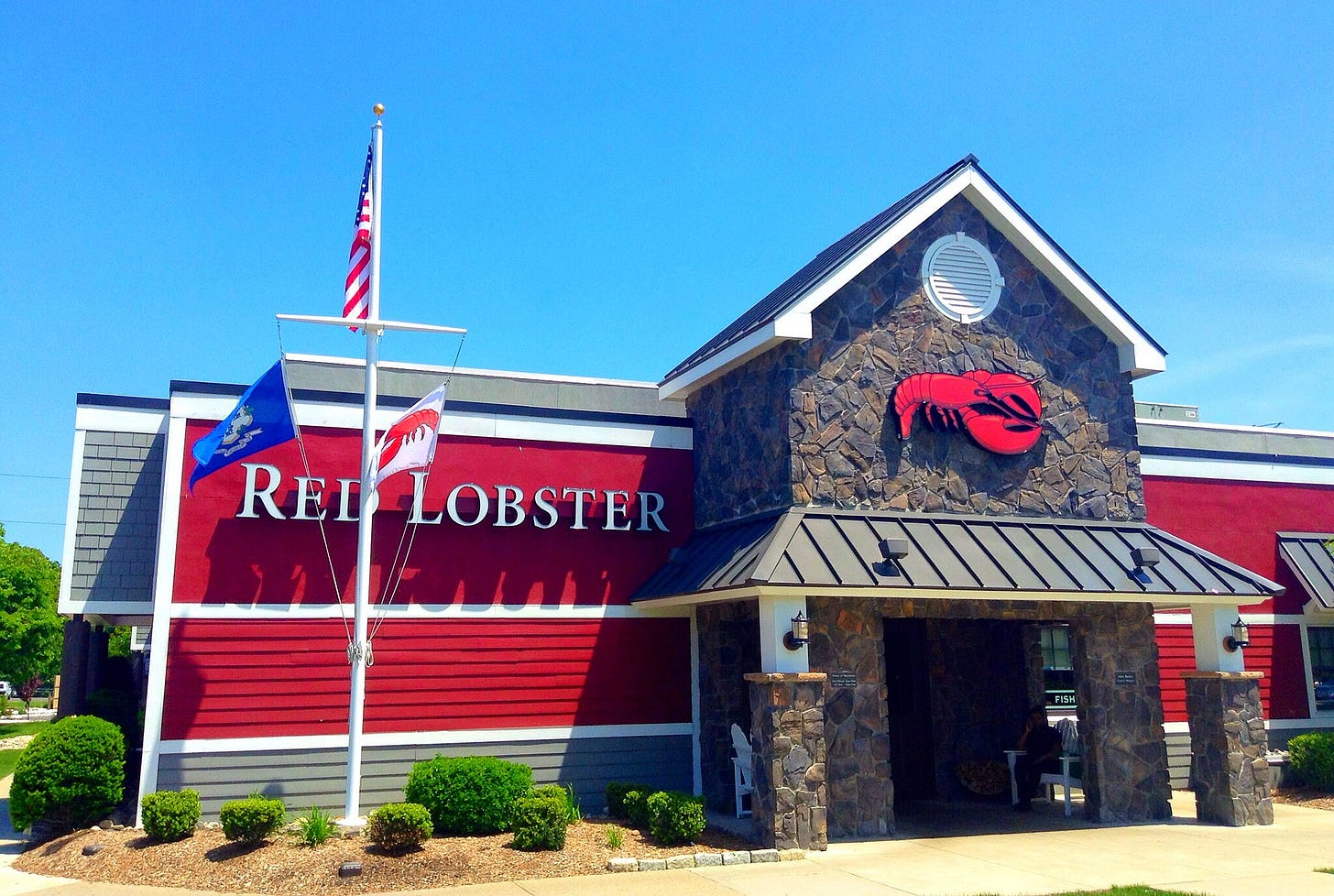How to Boil a Lobster
Endless shrimp didn't drive this soggy seafood chain into bankruptcy
“Anybody who knows about capitalism knows that bankruptcy is an essential part of capitalism.” - Joseph Stiglitz
Red Lobster didn’t go bankrupt because the chowderheads who run the joint launched an endless shrimp deal for $19.99.
The loss-leader promotion made for humorous headlines, but it was a minor ingredient in a long-simmering stew at the world’s largest seafood chain.
The No. 1 reason any company files bankruptcy is too much debt and too many financial obligations. This is the recipe that Red Lobster’s greedy owners and reckless managers used to boil the company alive.

Looting the lobster
Red Lobster filed for Chapter 11 bankruptcy protection on Sunday. But this is not a story about endless shrimp. It’s a story about endless pimps.
Red Lobster first opened in Lakeland, Fla., in 1968, pioneering the casual restaurant revolution. General Mills acquired the chain in 1970s, but then spun it off in 1995 as Darden Restaurants.
Darden – which owns Olive Garden, LongHorn Steakhouse, Capital Grille and a few other well-known brands – ran up boatloads of debt over the years to expand its eatery empire.
To alleviate this debt, investors pressured Darden to sell Red Lobster in 2014 to a San Francisco-based private equity firm, Golden Gate Capital, for $2.1 billion.
Golden Gate Capital then did what private equity firms do best.
It loaded the lobster with new debt, sold its real estate to American Realty Capital Properties, and then it leased back its locations, sticking the chain with lofty rent payments.
The crustacean peddler went from proud owner to exploited renter about as fast as you can order the flounder.
Then Golden Gate went fishing for a gullible sea creature and reeled in the Thailand-based seafood conglomerate that owns Chicken of the Sea.
There’s more to the story, but the rest is for paid subscribers.Please help make the business world a more honest, less reckless, less authoritarian place by:
Liking and commenting on posts, which boosts the Substack algorithm.
Sharing this newsletter with friends and associates.
Subscribing. Free or paid, I’m so glad you’re here.
And don’t miss these blunders.


